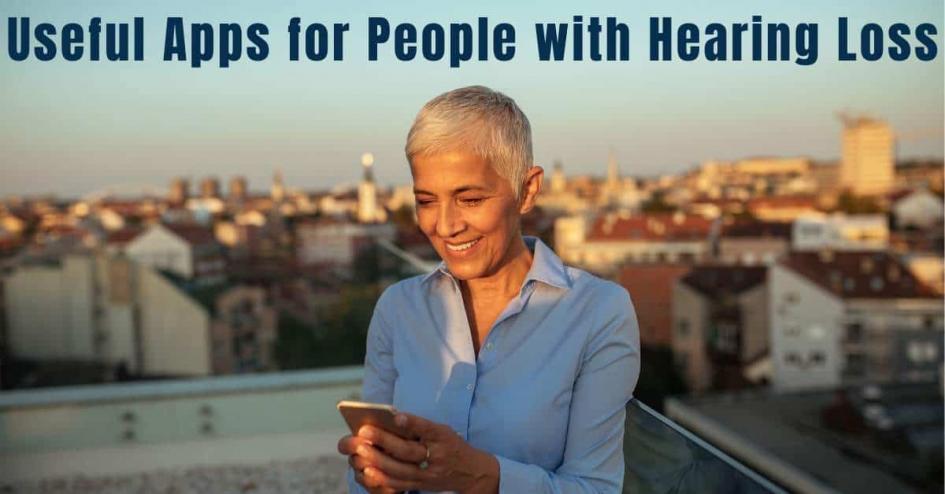
Useful Apps for People with Hearing Loss
Approximately 11 million people have either deafness or hearing loss in the UK, according to the charity Action on Hearing Loss – and 945,000 of these people are based in Scotland. As our population ages, more people are expected to be affected. Luckily, the tech industry is responding to an increased demand in software to cater for this growing group. Here are some of the most useful apps for those with hearing loss.
Apps to aid communication
Google Live Transcribe: Released this year, this app transcribes speech into text in real time. It is detected by the phone microphone and displayed on the screen. This is particularly useful for those in education or work who have to attend a lot of lectures or conferences. It also works in 70 different languages. It does require you to have an internet connection and unfortunately it is currently only available for Android phones. Rogervoice: Without the benefit of lip reading and body language, some with hearing loss have particular problems understanding others over the phone. This app will fix that. It offers live speech-text transcription during phone calls in over 100 languages. The user will receive the words being said on their screen, which will vastly improve phone conversations.
Apps for safety
TapSOS: Winner of the Tech4Good Digital Health Award, this is the very first smartphone app that lets you connect to any of the UK’s 4 emergency services without saying or hearing a single word. You tap on the screen to choose options of what you are looking for, which helps you get help in stressful situations. Although the app was designed for those who are deaf or hard of hearing, it can also be useful for those who are otherwise unable to talk in the moment, such as those who have breathing difficulties, or those who need to alert the police without someone in the room knowing. It stores the medical history of the user, which can be accessed instantly by medical personnel. It also uses GPS to pinpoint the user’s exact location, further reducing the need for the user to verbally relay information before authorities can assist. Braci Sound Alert: This neat little app enables you to record the sounds around you that you most need to hear, and alerts you through vibration whenever the app picks up the sound. You can use this for sounds that you might otherwise miss, such as the doorbell ringing, microwave dings or even fire and smoke alarms.
Apps for Entertainment
Your Local Cinema: In an average week, there are about a thousand shows screened with subtitles in the UK. This app helps you find a screening close to you. Simply enter the name of a film and the app will tell you the closest cinema with an accessible screening. Subtitles Viewer!: If you prefer to stay at home for your screen fix, you can download this app to give you free, synchronised subtitled for the shows or films on your IOS device. The subtitles come in a variety of languages and is a vital entertainment app for those who are deaf or hard of hearing.
An app for measuring noise
About 18,000 people in the UK have noise-induced hearing loss (NIHL). Even though you have hearing loss, you still need to protect your hearing from any future damage. You might also be anxious to protect those around you (such as young children) from developing noise-induced hearing loss while at music concerts or football matches. These are two reasons why those with hearing loss still need to measure the sound around them. There are many apps available on the market, but the most popular and highly rated is probably Decibel X. It allows you to save sound data and even share it with others.
An app for tinnitus sufferers
This one is specifically for tinnitus sufferers. Many people with hearing loss have a white noise machine to mask the sounds of their tinnitus symptoms. But the options for different sounds are limited. That’s why it is often worth using a sound therapy app with a Bluetooth speaker instead. There is a huge range of apps and sounds to choose from, so you are bound to find one which caters to the exact frequency of the ringing in your ear. Are you looking for that extra help with your hearing loss? At House of Hearing, we also stock a wide range of assistive listening devices which will help you handle everyday tasks more easily.
Our Clinics
All House of Hearing clinics are in town centre locations and accessible to public transport and parking. Home visits also available if mobility is an issue.


.png)
.png)
.png)

.png)
